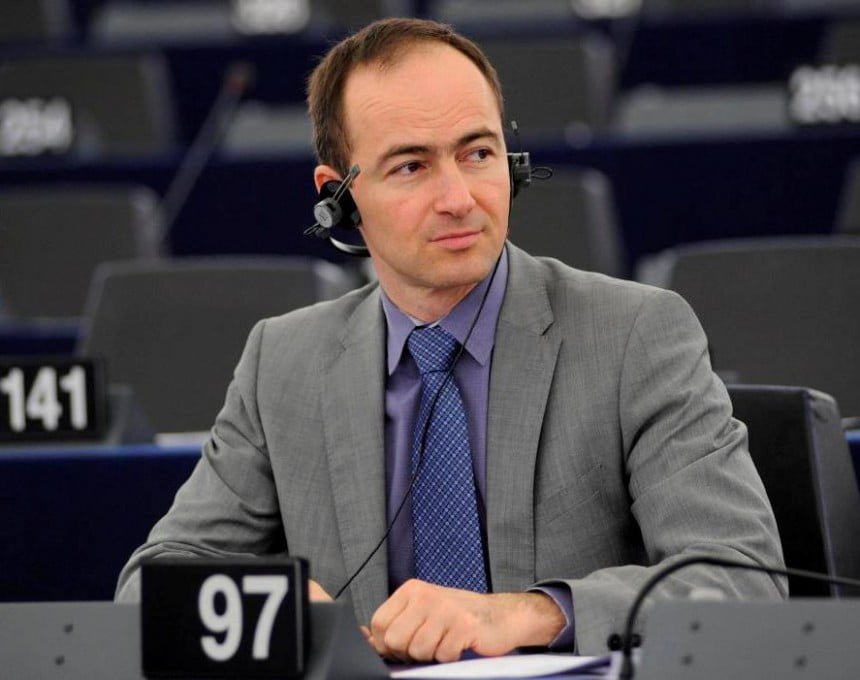Prime Minister Zoran Zaev is ignoring the latest round of accusations from Bulgaria, but they point to a serious new regional power-game over Macedonia. A routine statement of congratulating one of Macedonia’s ethnic communities on its national holiday, the types of which Macedonian politicians make every few weeks, sparked anger in Bulgaria.
The issue is that the community in question is the Serbian community. Serbia and Bulgaria have been locked in a long conflict over regional dominance, which has largely played out over Macedonians’ heads. Both countries have tried to expand their influence over Macedonia, recruit supporters, funded armed groups and churches and had them engage in fighting each other almost as much as the nominal enemy – the Ottoman Empire. Eventually they carved Macedonia up in 1913, with Greece grabbing the biggest slice, after previously Serbia and Greece ganged up on Bulgaria.
Zaev promised that he will restore Serbian language education in elementary schools, after the language was removed from being part of mandatory education in Yugoslavia. Serbian language media and their overall cultural influence were dominant in the Republic of Macedonia until 1991, and continue to be well watched, while Bulgaria’s presence is negligible – an issue Bulgarian politicians have often raised in their disputes with Zaev. Bulgaria happily and quickly recognized Macedonia’s independence, helped during the Greek embargo and donated a large number of its surplus tanks to Macedonia, but after its EU membership, its growing to leverage the veto power into more concessions on historic issues have been met with a negative reaction in Macedonia. More recent attempts at having a charm offensive (both Bulgaria and Serbia promised Zaev a donation of coronavirus vaccines, but neither has delivered) are drowned out by the hundreds of angry social media comments every time the two countries lock horns in front of a European Council meeting.
This is why Zaev’s statement to the Serbian community has sparked such anger in Bulgaria, especially among politicians who placed high hopes in Zaev, and expected that he will deliver for them a rewriting of Macedonian history and will push Macedonians toward adopting a Bulgarian identity.
Will Zaev extend a similar message to Bulgarians in Macedonia on the occasion of a Bulgarian holiday? Will he congratulate on the day of Goce Delcev, one of the most celebrated heroes of the Bulgarian people and announce the opening of a Bulgarian cultural center in Skopje and restore the teaching of the Bulgarian language in elementary schools that was abolished by Tito and the Yugoslav Communist Party? Will he remove textbooks where Bulgaria and Bulgarians are represented as Tatars and Mongols, occupiers, fascists and enemies of the Macedonians?, Kovatchev said.
Bulgaria has not pushed for Bulgarian language education in Macedonia, while claiming that the Macedonian language in general is a Bulgarian dialect. It hasn’t pushed for the declaration of a national holiday of Bulgarians in Macedonia – although Bulgarian politicians were prominent in the honoring of the anniversary of the 1928 assassination of Serbian occupying officer Velimir Prelic, carried out by a young female activist Mara Buneva in Skopje. Instead, Bulgaria generally considers all Macedonian heroes and events their own and wants them shared side by side.
But Kovatchev’s comments, while meant to be ironic, also show the depth of Bulgarian frustration with the fact that Serbian cultural influence enjoys the level it does in Macedonia, and greatly surpasses the Bulgarian influence. Zaev’s policy of appeasing the neighboring countries who hold veto power in EU and NATO – namely Greece and Bulgaria, and accepting all their demands, has led to hugely unrealistic expectations in Bulgaria as to what he can actually deliver, and whenever the expectations are betrayed, it leads to a new round of accusations that slowly but surely deepen tensions between the two nations.




Comments are closed for this post.